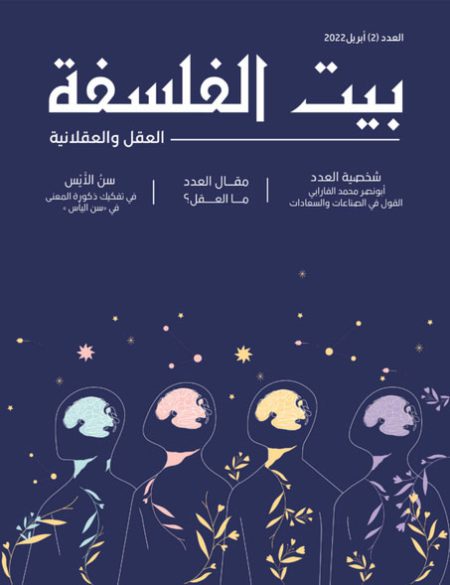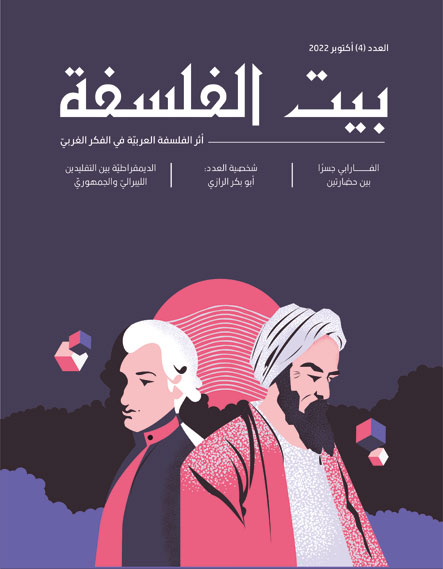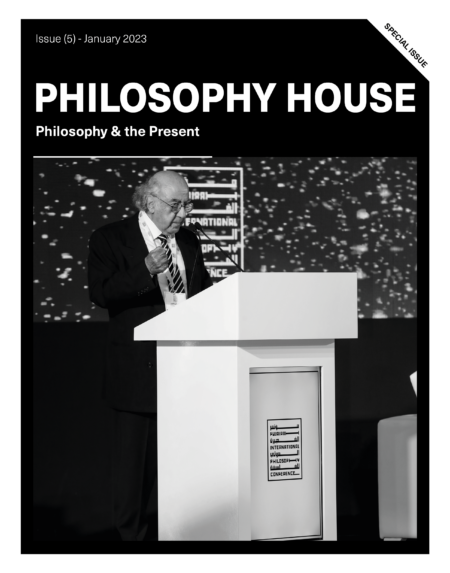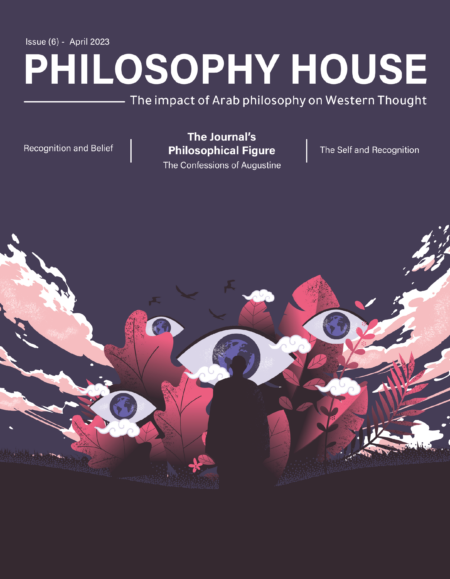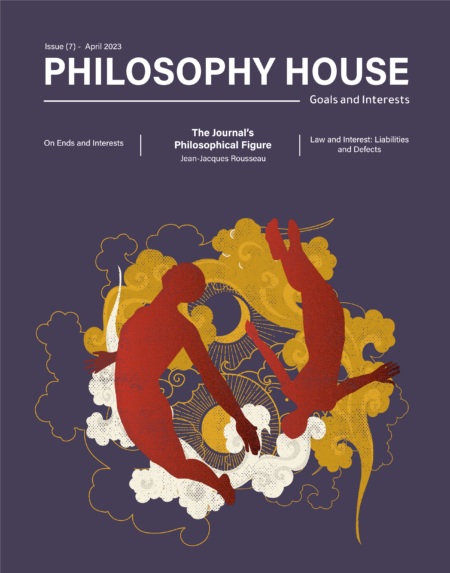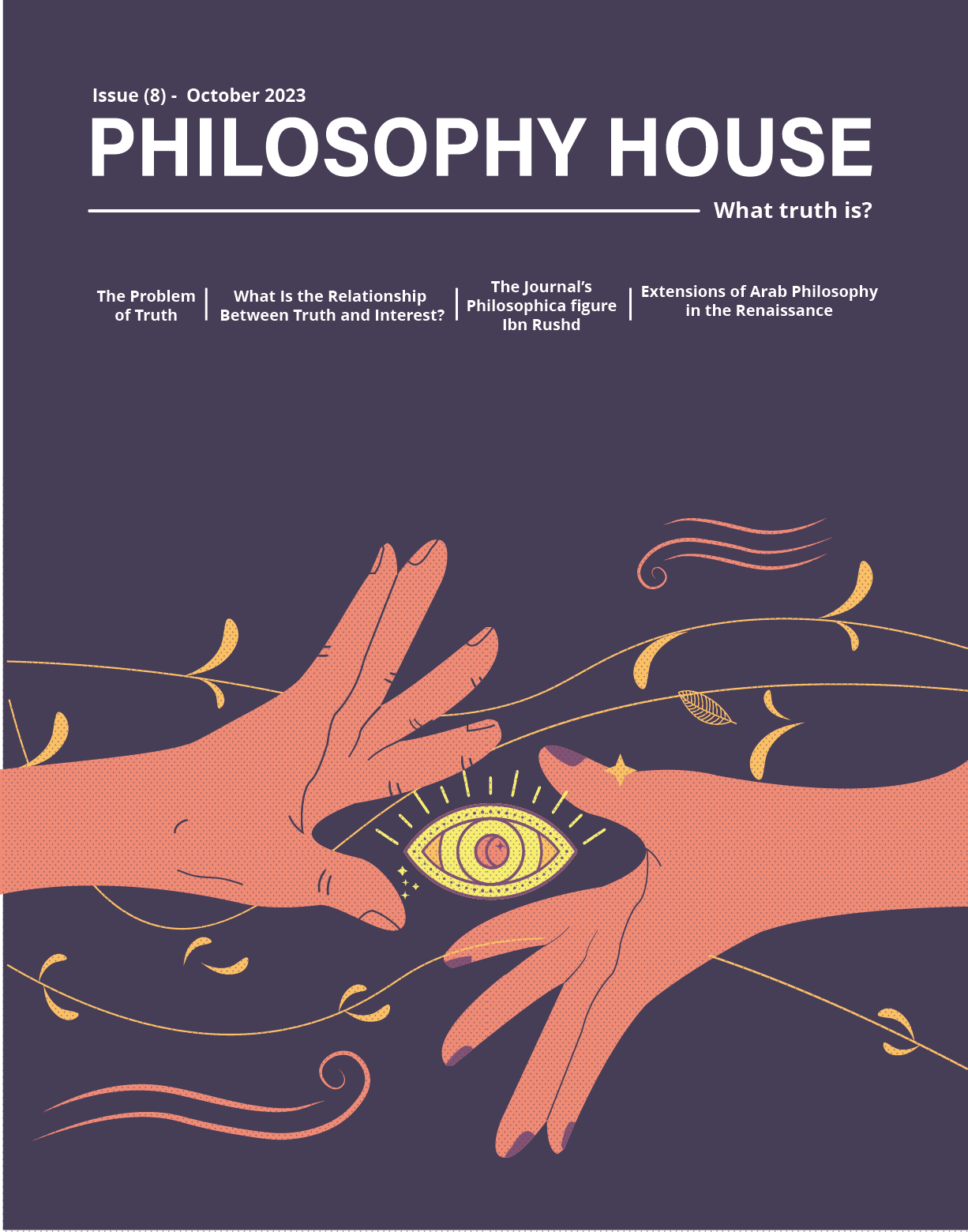10 results
-
10th Issue of Philosophy House’s Journal 0.00 AEDAdd to basket
Here we are, introducing the tenth issue of the House of Philosophy Magazine, pursuing, painstakingly and in earnest, the path towards foregrounding philosophy in our Arab world. This process is nothing but featuring philosophy in a discourse that addresses the problems in the realms of our life, conceptually and practically, taking into account the fact that Arab philosophical awareness is still making our ancestors’ philosophical heritage a subject of consideration, narration, and even questioning.
This is not surprising, simply because there is no nation that does not make its cultural heritage a subject for consideration and reconsideration. However, the current philosophical examination of our philosophical legacy is not an act of repetition, glorification, or pride. Rather, it is a dialogue with the ancestors, which is not selective, fabricated, or slavish. That is why the focus of the tenth issue bears the title, ‘Readings in Middle Arab Philosophy’. In this context, we do not need to explicate the concept of reading, as it has become uncontroversial that reading is a type of re-writing. -
1st Issue of Philosophy House’s Journal 0.00 AEDAdd to basket
Today, the world of thought is witnessing the launch of the first issue of Philosophy House’s Journal, one of the few publications specialized in publishing research by Arab and foreign philosophers in our Arab world. It is quarterly issued by The Philosophy House in Fujairah
-
2st Issue of Philosophy House’s Journal 0.00 AEDAdd to basket
In its second issue, the Philosophy House journal continues to publish articles and research by philosophers. Remarkably, the predominant stuff is produced by Arab philosophers and themed around one of the most vital subject matters: reason and rationality.
-
3st Issue of Philosophy House’s Journal 0.00 AEDAdd to basket
In its third issue, the Journal of Philosophy continues to publish articles and research by philosophers, and it is noticeable that the predominant material is produced by Arab philosophers, and in a very important axis is reason and rationality.
-
4st Issue of Philosophy House’s Journal 0.00 AEDAdd to basket
4st Issue of Philosophy House’s Journal
-
5st Issue of Philosophy House’s Journal 0.00 AEDAdd to basket
Indeed, philosophy tries to uncover the concealed causes behind the crises
of the present, and to show the extent of their impact on the potentials of
creators in all disciplines, and how to get rid of them. It is true that we do
not live in a country that is currently in crisis, as the movement of building
life and people in the UAE is moving at a steady pace, but we are part of
the world, and an active part in it. We influence it and we are affected by
it, and for this it is very necessary to put in the hands of our young people
the deepest knowledge of what is happening in this world, not only to
contribute to the protection of our homeland from any negative effects
of the world›s problems, but also to continuously contribute creatively
to building the future. We are a people who create tomorrow based on
moral values, scientific ambitions, faith in the capabilities of our youth,
their determination, their awareness, and their culture. We are a country
that links all the aspirations of its youth to tomorrow, and provides them
with preparation, planning and implementation.
-
6st Issue of Philosophy House’s Journal 0.00 AEDAdd to basket
Interest in the concept of recognition is not old, though it has been addressed in one form or another
by many philosophers and has, in contemporary philosophy, occupied a status that reached the point
of talking about the philosophy of recognition. We propose the concept of recognition as an axis
because recognition is a theoretical and practical problem at the same time; rather, it is a practical
problem that we try to conceptualize and present a philosophical discourse on. Human relationships
cannot be imagined without states of recognition that also generate states of non-recognition. What
compels a person or a group to recognize and remove recognition? This means—in answer to this
question—we must examine the status of recognition in the world of values, the world of interests, and
the world of ideological and political affiliations. The concepts of fanaticism, racism, selfishness, envy,
and negation are present in human life as negations of recognition. This brings us to those values that
create a culture of recognition, which can only triumph by recognizing the right to difference because
the most significant problem is that of accepting or rejecting the different. Acceptance of the right to
difference means recognition, and its denial only means that the other is no longer recognized, which
is why many human conflicts are based on non-recognition. This is evident in the fact that ideological
justifications of interests hide behind a discourse that validates the negation of the other, especially
if the ideology held by a group of people involves the idea of possessing absolute truth and negating
other truths. In this sense, recognition is not based on illusion; rather it is illusion that is the source of
negation and non-recognition.
In our contemporary world, and especially in our Arab world, recognition is teetering under the blows
of all forms of various negations, which is why we have chosen the concept of recognition as the main
focus of our issue.
-
7st Issue of Philosophy House’s Journal 0.00 AEDAdd to basket
The publication of the seventh issue of our magazine House of Philosophy coincides with the inauguration
of the House of Philosophy building. The significance of this event is manifold. It is a unique phenomenon in
the world of contemporary philosophy. The House of Philosophy is not an academic or university institution,
but rather an intellect/nous for generating concepts and ideas. Truly, it is a place that attracts Arab and global
philosophers, serving as a bridge of communication with all that is created in the world of contemporary
philosophy. Additionally, it is closely linked to philosophy and lived reality, a connection which forms the
primary concern of the House of Philosophy in Fujairah. Thus, the seventh issue of the magazine House of
Philosophy, which contains several diverse articles, revolves around a central theme related to the lives of
people, society, and the state, namely, “Goals and Interests.”
-
8st Issue of Philosophy House’s Journal 0.00 AEDAdd to basket
That we make truth problematic is because it has burdened many philosophers
Since the first Greek philosopher until now, discourses concerning this problem have varied. Some view it as an ontological problem, some as a cognitive one, and others as an epistemological one. Do we suspend our judgment about truth as it is a thing in itself, as a Kantian noumenon, something unknowable that lies behind the phenomenon? These questions always prompt us to return to making truth a subject of contemplation. The significance of philosophical inquiry into truth increases with the diversification of knowledge domains as the philosopher wonders: is objective truth attainable in the human sciences, the sciences that deal with a diverse, changing, and different world and what does it really mean for knowledge to be objective? Does the relativity of knowledge negate its objectivity? Or does the relativity of its objectivity keep us in a perpetual quest for it?
with providing multiple answers to the question of what truth is. And every question that has multiple answers becomes a problem. What drives people to turn their representations and imaginations, which have no real basis, into truths?
-
9st Issue of Philosophy House’s Journal 0.00 AEDAdd to basket
:In Hippias’s dialogue with Plato, Socrates is quoted as saying
But, Hippias, what precisely is the reason why those men of old, whose names are a byword
for wisdom – Pittacus and Bias, and the associates of Thales of Miletus, and those who
came later, down to Anaxagoras – all of them, or most of them, apparently refrained from
?public activity
:Hippias replies
Why do you think, Socrates? Weren’t they just lacking in ability, and the competence to
?reach an understanding of both the public and private spheres
Nevertheless, since philosophers live in the midst of the being of humanity, they have no
choice but confronting life’s problems and meeting life’s needs, the problems of people,
all people: the poor and the rich, the old, the young and the child, the good and the bad,
the submissive and the rebellious, the sad and the joyful, the homeless, the refugee and
the orphan, and the bereaved, the hungry and the cold, the lover and the unemployed,
the victims of slavery and the oppressed, the longing, the yearning, the haters, the lovers,
the criminal, the influential, the weak, the strong, the aspiring, the contented, the noble,
the lowly, the oppressive, the oppressed, the pessimist, the optimist, the indifferent, the
alienated, the objectifying, the foolish, the absurd, the generous, the stingy, the fighter, the
opportunist, the ignorant, the scholar, the racist, the tolerant, the pretender, the liar, the
truthful, the deceitful, the ordinary, the familiar, the astonishing, and the contemplative
All of these are the true sources of the great questions of philosophy related to being
With the philosophy of values, life, death and destiny. Yes, philosophy arose from thinking
about the problems of people’s daily lives, from the never-ending historical determinants
.of human existence



